Substance use disorder is a serious and escalating issue that affects millions globally, often resulting in life-altering consequences if not addressed early. Addiction doesn’t occur overnight—it progresses gradually, impacting every area of a person’s life, including their physical health, emotional well-being, relationships, and ability to manage daily responsibilities.
Unfortunately, many individuals don’t realize they’re struggling until the situation becomes severe. Likewise, loved ones may miss early red flags. Recognizing the warning signs early is essential—because the sooner someone gets help, the better the chances of a successful recovery.
Physical Signs of Substance Abuse Disorder
Changes in appearance and overall health are often the first visible signs of substance use issues. Someone who once took pride in their grooming and hygiene may begin to look unkempt or disheveled, neglecting basic self-care routines.
Unexplained weight fluctuations are another indicator. Substances affect appetite and metabolism in different ways—stimulants like methamphetamine or cocaine often lead to rapid weight loss, while alcohol or certain medications may cause weight gain.
The eyes can also offer telling clues. Look out for bloodshot or glassy eyes, or pupils that are unusually large or small. Frequent nosebleeds may suggest the use of snorted drugs like cocaine or inhalants, which can damage nasal tissues.
Physical coordination may also be impaired. Tremors, slurred speech, or clumsy movements may suggest intoxication or withdrawal—often mistaken for fatigue or illness, but potentially signs of a deeper issue.
Behavioral Changes of Substance Abuse Disorder

Addiction impacts far more than just the body—it can significantly alter how someone behaves. One of the most common indicators is a shift in mood and personality. A person might swing between irritability, anxiety, aggression, and intense euphoria, followed by sudden sadness or withdrawal. These mood swings are often driven by how substances affect the brain.
Increased secrecy and social withdrawal are common. Individuals may avoid family and friends, become evasive about their activities, and grow defensive when questioned. They may lose interest in previously enjoyed hobbies, replacing those with substance use.
Financial struggles can also surface. An ongoing habit can become costly, leading individuals to frequently borrow money, drain savings, or even resort to theft to fund their use.
Risky or reckless behaviors are another red flag. This might include driving under the influence, engaging in unsafe sexual activity, or getting into fights. Their judgment becomes impaired, increasing the chances of harm to themselves and others.
Psychological and Emotional Symptoms of Substance Abuse Disorder
Substance use frequently intensifies existing mental health issues or brings about new psychological challenges. Paranoia, anxiety, and depression are common among those using drugs or alcohol. Someone might appear excessively nervous without clear cause, or become emotionally numb and unmotivated.
They may disengage from work, school, or relationships, struggling to find joy or meaning in everyday life. Memory problems, confusion, and forgetfulness can also emerge—ranging from losing track of conversations to being unable to recall recent events.
In more extreme cases, certain substances may cause hallucinations or delusions. These can be deeply distressing for the individual and those around them, signaling that professional help is urgently needed.
Emotional instability is another key warning sign. Those affected may overreact to stress or minor setbacks, experiencing frequent emotional outbursts or difficulty coping with everyday frustrations.
Social and Relational Warning Signs
Substance abuse takes a serious toll on relationships. As addiction worsens, trust breaks down. Arguments and tension become more frequent. Individuals may withdraw from family and social events out of shame or a desire to hide their behavior.
Neglecting responsibilities is another major red flag. Missing work or school, failing to meet deadlines, or showing a lack of accountability can signal that substance use is taking priority over daily obligations.
A sudden shift in social circles may also be a sign. If someone distances themselves from long-time friends and starts associating with new peers who use substances, it may indicate a deepening issue.
Legal troubles often accompany advanced substance use. Arrests for driving under the influence, drug possession, or disorderly behavior may point to dangerous patterns that require immediate intervention.
Knowing When to Get Help
Many people delay seeking support because they underestimate the severity of their substance use. However, when alcohol or drug use begins to interfere with daily life—damaging relationships, derailing careers, or draining finances—it’s time to seek help.
Experiencing withdrawal symptoms when not using is another serious sign. Symptoms like shaking, nausea, cravings, and mood swings may indicate a physical dependency, which can be difficult and even dangerous to face alone.
Getting help early can significantly improve recovery outcomes. Professional support such as therapy, outpatient treatment, or medically supervised detox provides a foundation for lasting change and healing.
Get Substance Abuse Disorder Treatment in North Andover, MA

At Luna Recovery for Women, we offer customized therapy options and outpatient programs tailored to meet each individual’s needs. No matter your situation or how long you’ve been struggling, there is hope—and help is available.
Reach out to us today to start your path toward recovery. A better future begins with one step.


